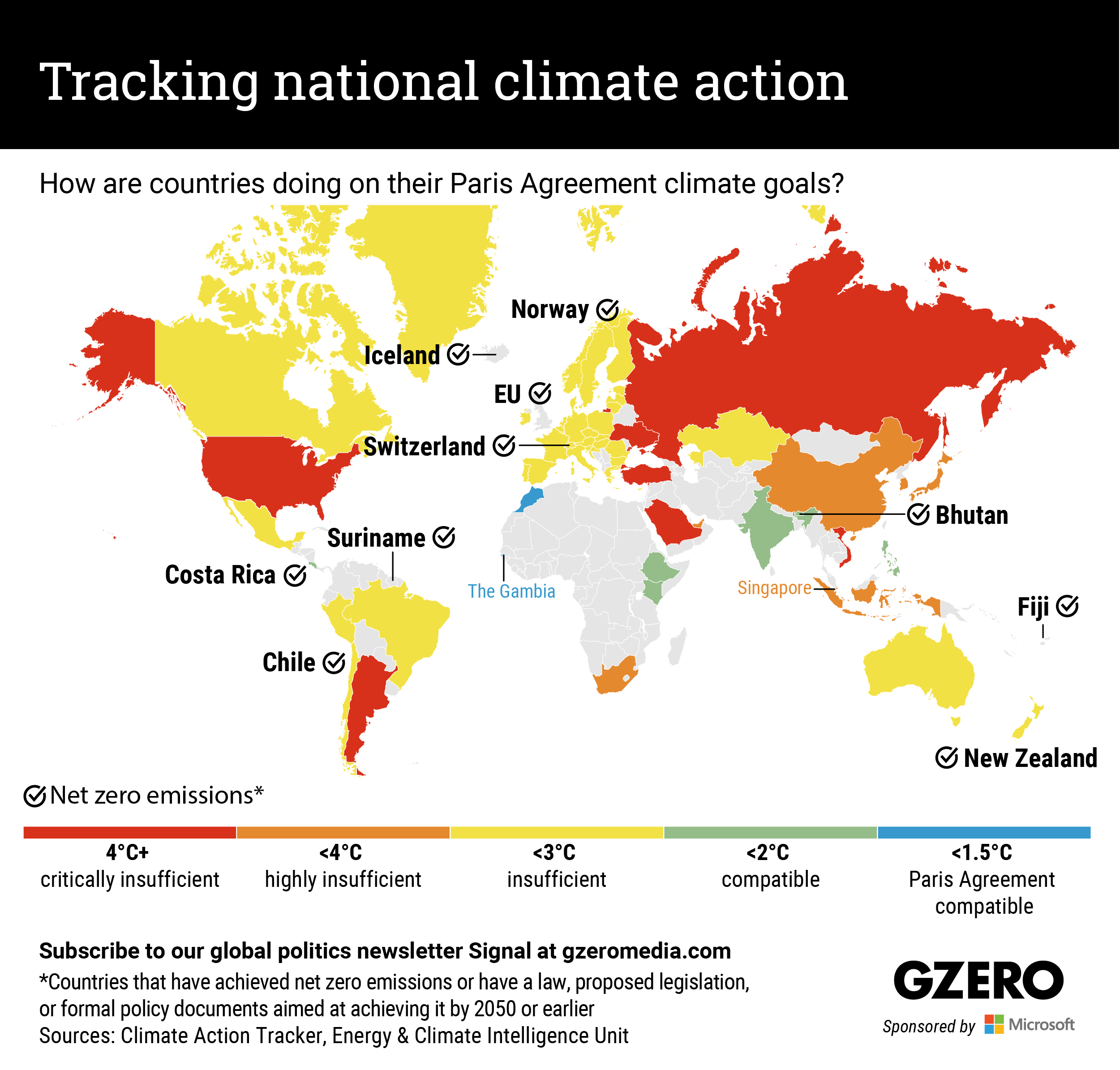September 13, 2020
Under the terms of the 2015 Paris Agreement, signatory countries agreed to make their own commitments to curb greenhouse gas emissions. At next year's UN climate change conference in Glasgow, nations will assess progress to date and (possibly) make bolder commitments, given technological progress and the mounting urgency to take climate action. But for now, only a handful of countries are on pace to limit warming to 2°C above preindustrial levels — let alone to meet the 1.5°C target that most scientists believe will help us avoid heaviest climate impact. A small group of intrepid governments aim to achieve "net zero" emissions in coming decades. We look at how certain nations are performing on climate action, and highlight those with plans to reach net zero.
From Your Site Articles
More For You
Bad Bunny during the Super Bowl LX halftime show press conference at Moscone Center.
Kirby Lee-Imagn Images
100 million: The number of people expected to watch the Super Bowl halftime performance with Bad Bunny, the Puerto Rican superstar and newly minted Album of the Year winner at the Grammys.
Most Popular
Think you know what's going on around the world? Here's your chance to prove it.
- YouTube
An imminent US airstrike on iran is not only possible, it's probable.
Americans are moving less — and renting more. Cooling migration and rising vacancy rates, especially across the Sunbelt, have flattened rent growth and given renters new leverage. For many lower-income households, that relief is beginning to show up in discretionary spending. Explore what's changing in US housing by subscribing to Bank of America Institute.
© 2025 GZERO Media. All Rights Reserved | A Eurasia Group media company.
